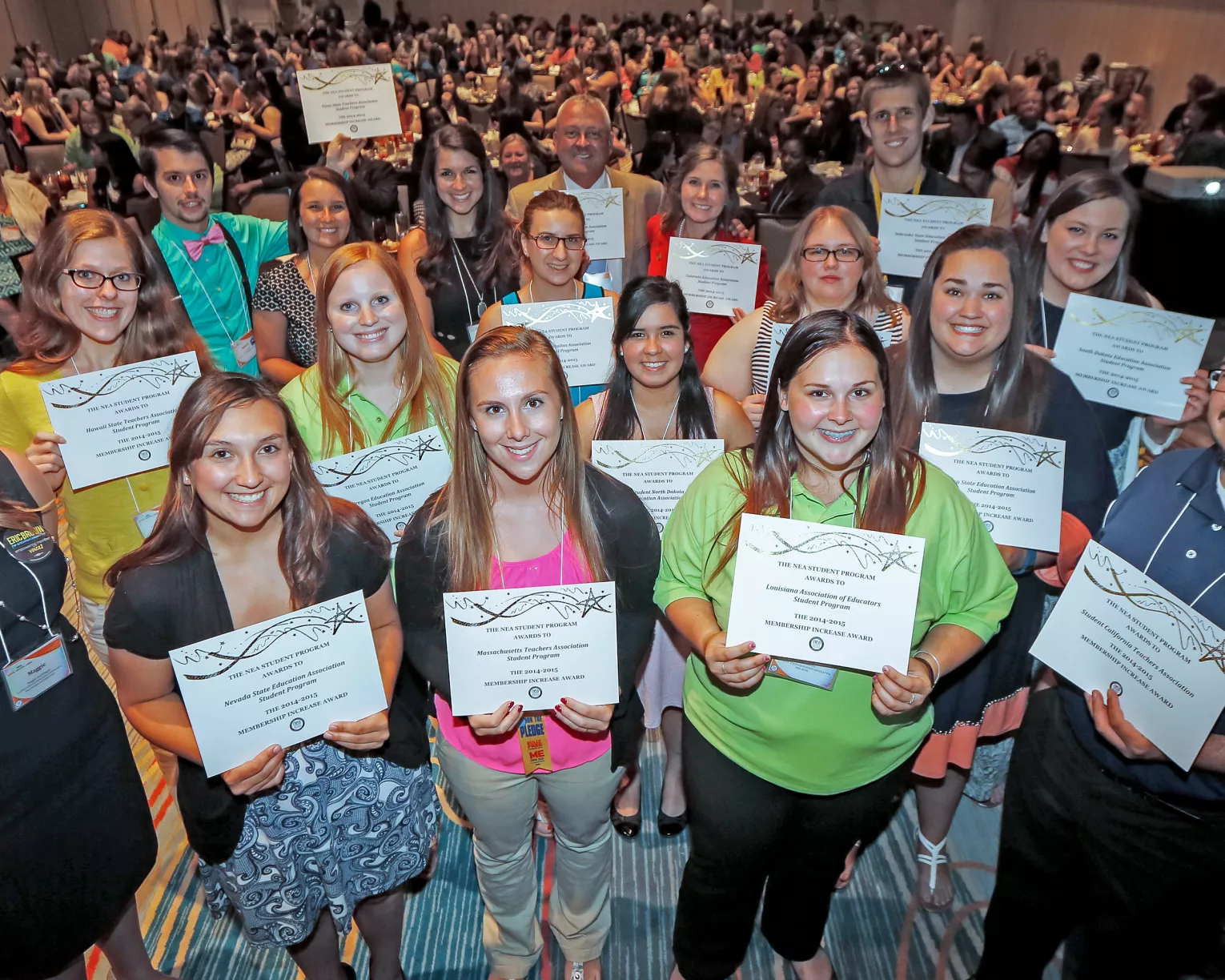As we all have pushed through this trying year, we have learned that we have to pay attention and protect our mental health in new and more dedicated ways. The Aspiring Educator Program partnered with the National Center for School Mental Health at the University of Maryland’s School of Medicine to launch a Mental Health Week to create a space for Aspiring Educators to share and grow together. Join in a week of activities, resources, and events — as we band together as future educators in support of each other's journeys for better mental health and wellbeing. Follow us on Facebook and Instagram to see more and be featured!
NEA ASPIRING EDUCATORS - MENTAL HEALTH WEEK 2021
WE’RE IN THIS TOGETHER!
AE Mental Health Week Resources & Events
Educator Round Table May 7th @8pm ET: Join us for a discussion with educators and allies on facing mental health issues in our own lives, classrooms, and in the political arena. We'll be sharing amazing resources from our partners at University of Maryland National Center for School Mental Health, ways to get involved in political advocacy for mental health issues, as well as putting a bow on an amazing AE Mental Health Week. Sign up here.
Seeking Help Fact Sheet: Finding time to address and foster our mental health while balancing exams, schoolwork, student teaching, and life in general can feel overwhelming. As future educators, making time and space to help others is at the very core of what we do – but we need to help ourselves too. This short guide has resources based on the different needs of Aspiring Educators, and where to find support.
The Good Vibes Playlist: There are certain days when we all need to just dance it off. Check out our shared AE Mental Health Week Good Vibes Playlist and add your favorite songs that get you to your happy place. We’ll be sharing the playlist throughout the week and playing it during our Educator Roundtable Friday.
Video Series: The short videos below are part of the Classroom WISE (Well-Being in School Environments) training launching in early June! Classroom WISE is a free, online training for all educators. Classroom WISE resources offer concrete, universal approaches to promoting student mental health and creating safe and supportive classroom environments, describe student behaviors that may indicate a mental health concern, and provide specific skills and strategies to engage and support students with mental health concerns. Sign up here.
Are you an affiliate?


